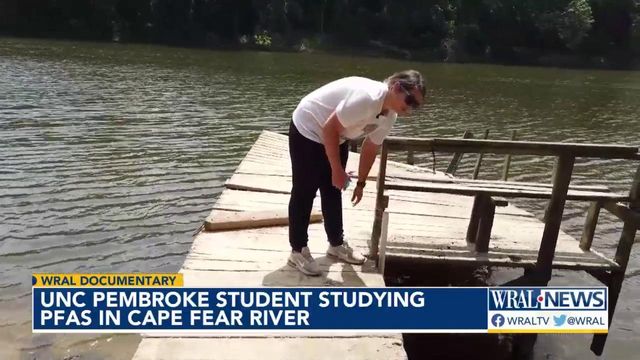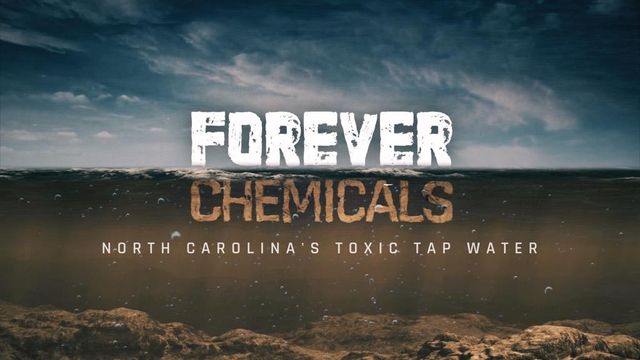Cape Fear officials urge state to study health risks from 'forever chemicals' in drinking water
The Cape Fear Public Utility Authority is urging the state to study the health risks of toxic chemicals found in people’s drinking water.
The authority asked the state to add a new compound to a group of toxic PFAS contaminants, known as “forever chemicals," that the state has already prioritized for study.
The request comes one day after the WRAL Documentary "Forever Chemicals: North Carolina’s Toxic Tap Water" made its debut.
The authority spent $43 million on filters to remove forever chemicals from water dumped by a facility in Fayetteville.
Understanding these chemicals, and how to get rid of them, has become a personal mission for many in the contaminated area.
Ashley Barez, a student at the University of North Carolina at Pembroke, has spent the past two years studying chemical contamination in the Gray’s Creek Community.
"I've just been doing more and more research, and the deeper you dig, the more you find out," she said. "And the worse it gets."
Toxic forever chemicals seeped into the environment from the nearby Fayetteville Works Plant owned by Chemours, formerly DuPont.
The chemicals have been found in thousands of drinking water wells in the area and are linked to adverse health effects, including cancer.
Barez was featured in the new WRAL Documentary "Forever Chemicals: North Carolina’s Toxic Tap Water", which showed the reality of what people in Fayetteville and surrounding areas have to live with five years after learning about the contamination.
"I think it's disgusting," Barez said. "It's heartbreaking."
"Sometimes, it makes me emotional... being from here and seeing what it's doing."
Barez said she felt called to find answers and help her hometown.
She has a testing site set up at the edge of the Cape Fear River with sensors that monitor wells located 50 meters and 150 meters from the shore.
"We know it's coming from rainwater, and we know it's coming into our groundwater," she said. "But we're [going to] see how much the surface water in the river is interacting with the contamination of the groundwater."
Barez said she hopes that learning more about the extent of the contamination will help the community fight for its cleanup.
A Chemours spokesperson said the compound is essential to the economy, and the company is committed to manufacturing it responsibly.
Related stories:
- Watch the WRAL Documentary: 'Forever Chemicals: North Carolina's Toxic Tap Water'
- WRAL Documentary: 'Forever Chemicals: North Carolina's Toxic Tap Water'
- 13-year-old NC cancer survivor fights for clean water
- EPA: More drinking water systems across NC contain toxic 'forever chemicals'
- PFAS: 'Forever chemicals' part of widespread environmental crisis
- Outrage over Chemours' plans to expand production after widespread chemical pollution in NC drinking water
- 'Forever chemicals' found in central North Carolina, study finds
- Study: Dogs, horses near Fayetteville have 'forever chemicals' in their blood
- EPA wants to designate two 'forever chemicals' as hazardous substances
- Contamination concerns at Teer Quarry, a future drinking water supply for Durham












